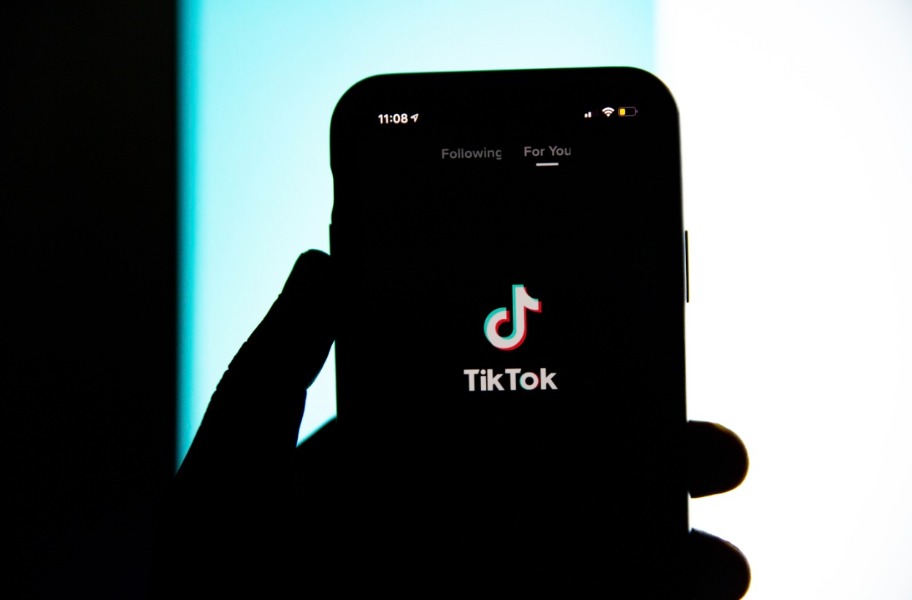A Way Forward for U.S. Policy on TikTok
The chaotic American response to TikTok could have unintended consequences. But there is a better way.

Published by The Lawfare Institute
in Cooperation With

The unfolding saga over TikTok and WeChat will have lasting impact far beyond the availability of dance videos and lip syncs. Reporters, tech watchers, First Amendment scholars and social media influencers alike are anxiously watching each twist in the fight between the U.S. and China over information technology and social media apps—a fight that presents a stark choice between the way a free and open society approaches the nexus of business and national security, and the path advocated by authoritarian governments like China.
At present, TikTok and U.S. companies Oracle and Walmart are racing to win the approval of a merger deal that resolves the app’s foreign ownership concerns before the fast-approaching Nov. 12 deadline for TikTok to be sold to a U.S. company. The most recent proposal would have created a new entity TikTok Global owned by ByteDance, Oracle, Walmart and ByteDance’s investors. But details about the actual control over the company were unclear and disputed. TikTok and several of its creators are also fighting the Trump Administration in U.S. courts over a ban of the app’s transactions in the U.S. Set to go into effect Nov. 12, a recent ruling halts that ban until legal battles are resolved.
Hu Xijin, the editor of the Chinese state media outlet the Global Times, weighed in recently on the most recent merger proposal. “The US restructuring of TikTok’s stake and actual control should be used as a model and promoted globally,” remarked Hu on Twitter. “Overseas operation of companies such as Google, Facebook shall all undergo such restructure and be under actual control of local companies for security concerns.”
It’s not exactly a good sign for Chinese state media to tout a U.S. play designed to be “tough on China” as a model for global behavior. The United States may be bumbling its way into a precedent the consequences of which it has yet to anticipate.
On Sept. 27, a federal district court granted TikTok an initial temporary reprieve in the form of a preliminary injunction against a Commerce Department ban, which would block downloads of the app from U.S. app stores. On Oct. 30, a federal district court enjoined the more comprehensive ban of the app in the U.S. that was set to take effect on Nov. 12. The Trump administration is vigorously challenging both rulings, while the status of the Nov. 12 divestiture deadline remains unclear. But despite the numerous twists and turns, muddled messaging from Washington, contradictory statements from Beijing, and even a subsequent tweet from Hu railing against the idea that the United States would “rob [TikTok] and turn it into a US baby,” the vision Hu articulated is consistent with a model for the globalized world and localized internet that China has promoted over the past decade. As the editor of the party-run Global Times, Hu often reflects the more nationalistic elements of Chinese Communist Party leadership. Hu’s tweet could be read as a threat to American companies operating in China—or elsewhere—a suggestion that the Chinese government will try to exert greater control over those companies in response to U.S. actions on TikTok. There is little to this specific threat, at least in China itself, however. Facebook and Google, the two companies that Hu mentioned, by and large do not have overseas operations in China that could be reasonably commandeered by local companies. Both were initially ejected from the Chinese market more than a decade ago. But an ever-louder chorus in Europe is calling for a reckoning on Big Tech that includes the possibility of “breaking up” companies such as Facebook and Google.
Hu’s proposal also speaks to a larger point, one that should worry democracies. The idea of a world in which there are no truly multinational companies—only companies in different regions adapting to the control and the value systems of their host countries—is inherently authoritarian.
This vision is in line with the digital and cyber sovereignty agenda that China and Russia have championed at the United Nations since 2011. The two have favored advancing domestic internets and government-controlled internets, which can be shut off—and increasingly are in response to protests—in contrast to a free and open global internet. According to Access Now’s #KeepItOn report on internet shutdowns in 2019, governments shut down the internet during protests at least 65 times—most notably Sudan, Iraq, Iran, Venezuela, Zimbabwe, Algeria, India and Indonesia. China and Russia have also pushed for expanding online censorship of political content and promoting data localization policies that prohibit data outside national borders in efforts to digitally wall off authoritarian societies. In recent years, these ideas have gained more global traction, as nations from Vietnam to Indonesia increase their governments’ control over the internet. In December 2019, the United Nations even adopted a Russia-backed cybercrime resolution that envisions a more expansive view of the misuse of communications technologies, potentially to include political speech.
This sovereign approach is consistent with the idea that there are no universal rights, only local laws. For years, multinational corporations that sought to operate in both democratic and authoritarian states have faced dicey choices over whether to comply with censorship requests and demands for data. Local control of multinational companies would eliminate this choice. And while a complete splinternet that ends multinational operations may not be on the near-term horizon, even democracies are looking to exert more local or regional control over internet regulation. The EU’s digital sovereignty push is but one example of dissatisfaction with the status quo.
The U.S. should advance a foreign policy agenda that resists the cyber sovereignty approach and stands up for universal rights. But the blunt, chaotic and process-free unilateral action on TikTok has failed to draw a clear distinction between democratic and autocratic measures taken in the name of national security. In the absence of clearly defined criteria around ownership, data storage, data access and algorithmic influence—all thorny components of the global information contest in which democracies find themselves—the United States risks emulating the authoritarian model.
For TikTok, that may mean going back to the drawing board and attempting to reverse some of the damage done by President Trump’s overly personalized rhetoric and obliterated national security process. To do so, the United States should instead join up with the growing number of democratic allies that are also raising concerns about TikTok and Chinese information influence more broadly in the wake of Beijing’s failed coronavirus diplomacy offensive. In late September hearings, TikTok drew scrutiny from U.K. lawmakers and the Australian parliament; and the EU data protection regulator and several EU member states, including France, Denmark, and the Netherlands, are also investigating TikTok for its data security and privacy practices. India has already banned TikTok along with 174 other China-based mobile apps in response to escalating border tensions with China. While the perception of the threat that authoritarian China as a technological powerhouse and exporter poses varies among democracies, there’s no reason for the United States to act alone. Advancing democratic principles and national security over solely protectionist U.S. economic interests requires acting in concert with allies.
In a related standoff on the China-based multipurpose chat, mobile payment and information app WeChat, questions over freedom from state surveillance are also at stake. Aided by its popularity across China and the Chinese diaspora, WeChat is central to the Chinese government’s surveil-and-jail apparatus: arresting citizens, journalists, and activists for their speech on the platform and monitoring foreign users to train and improve its censorship algorithms. The Trump administration has also issued a ban of WeChat in the United States that was set to enter into effect on Sept. 20, but it is currently disputed in the courts on First Amendment grounds. Here, too, a multilateral approach could build both a common understanding among democracies of authoritarian threats to the information environment, and the willpower and leverage to do something about those threats.
The United States should move with key allies to hold a conference of democracies that takes up questions over the threats from authoritarian information apps and influence. President-Elect Joe Biden has stated he will convene a Summit of Democracy within his first year in office—to include a call to action for private technology platforms against facilitating repression and surveillance—into which this effort could fit. There is also precedent for the success of such a move. In May 2019, a similar convening in Prague on the question of Chinese dominance in 5G information infrastructure produced a series of vendor-neutral principles and proposals that have since formed the basis for national and plurilateral decision-making on the role of the Chinese company Huawei in 5G systems. The EU’s 5G Toolbox of risk mitigation measures, the Commission-level framework through which EU member states are making decisions on cybersecurity and 5G vendor selection, draws on the principles outlined at the Prague 5G Security Conference around network diversification and the dangers of network disruption and market-distorting state subsidies. It’s time to extend that multilateral spirit beyond the network layer to the data and content domain to address apps like TikTok and WeChat.
A State Department Bureau of Cybersecurity and Emerging Technologies helmed by an assistant secretary—as recommended by the Cyberspace Solarium Commission—would be a key perch from which to lead this effort. Britain’s D10 structure or a similar transnational alliance of democracies focused on technology policy, such as a D7 or D20, could take up this mission. And while matters of national security and foreign influence will naturally involve nation-states, many of the arenas in which the information contest is playing out are on private-sector platforms. Calls for regulation on data privacy and clarity in the online information environment from industry should feed into this effort. Democracies cannot afford to cede the immense tools at their disposal—multilateralism, a robust business environment and a consistent application of the rule of law among them—in this overarching contest with authoritarians in the information environment. Wielding these tools in support of democracies’ own ends can provide the means to compete while avoiding authoritarian mimicry.


.png?sfvrsn=4156d4f8_5)
-(1)-(1).png?sfvrsn=1bc11cd_4)

